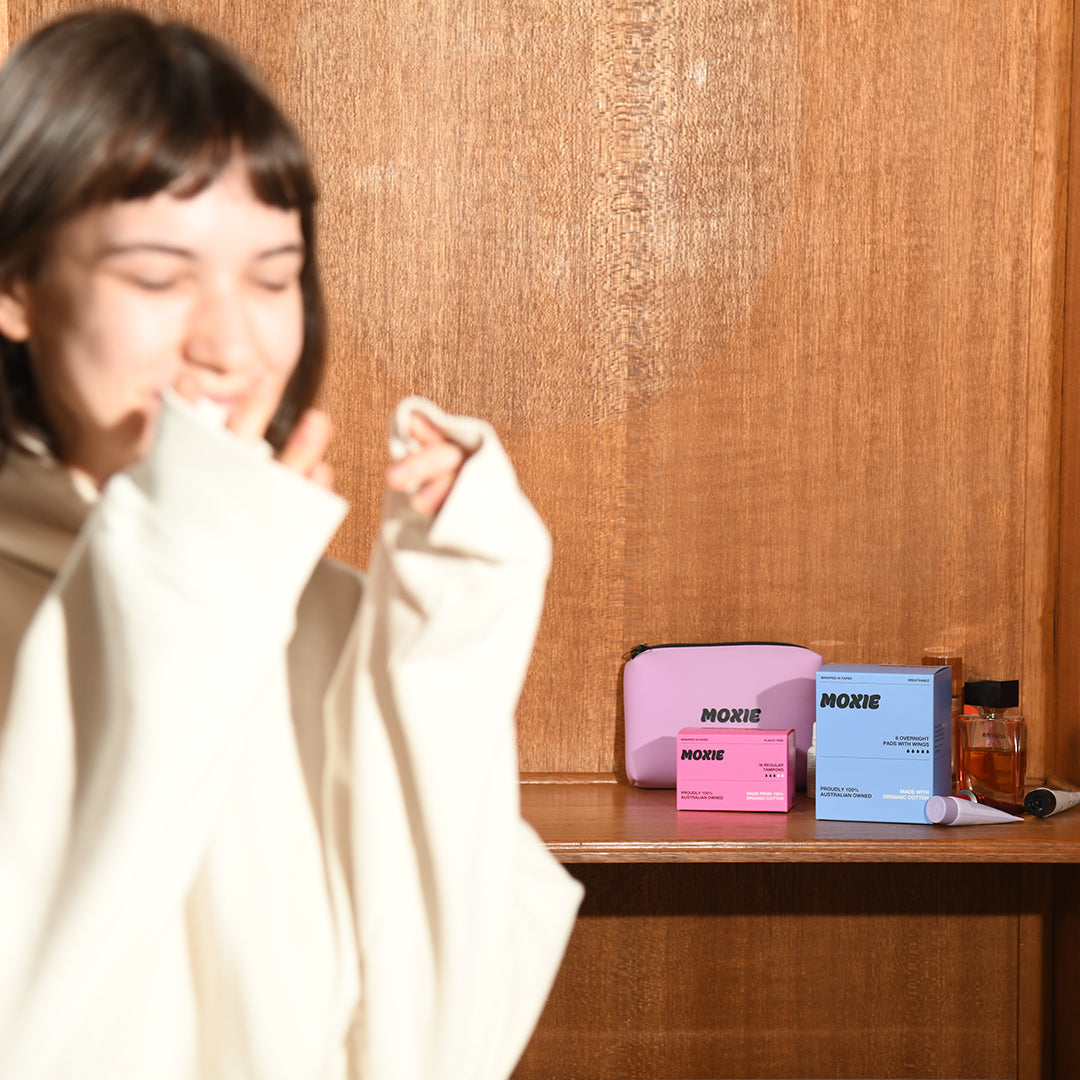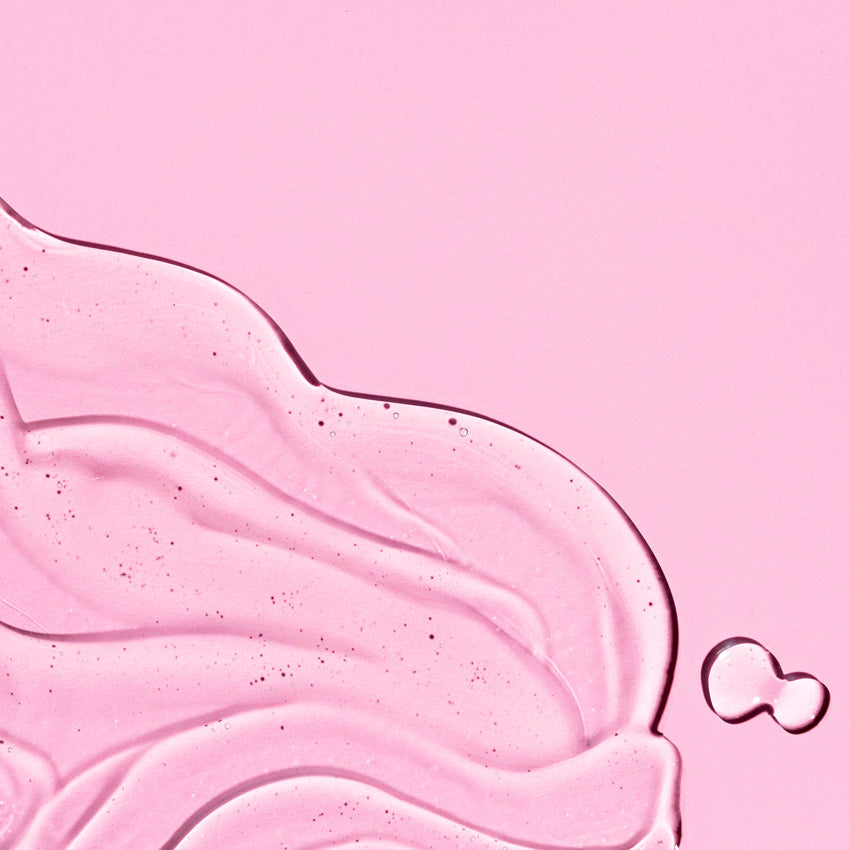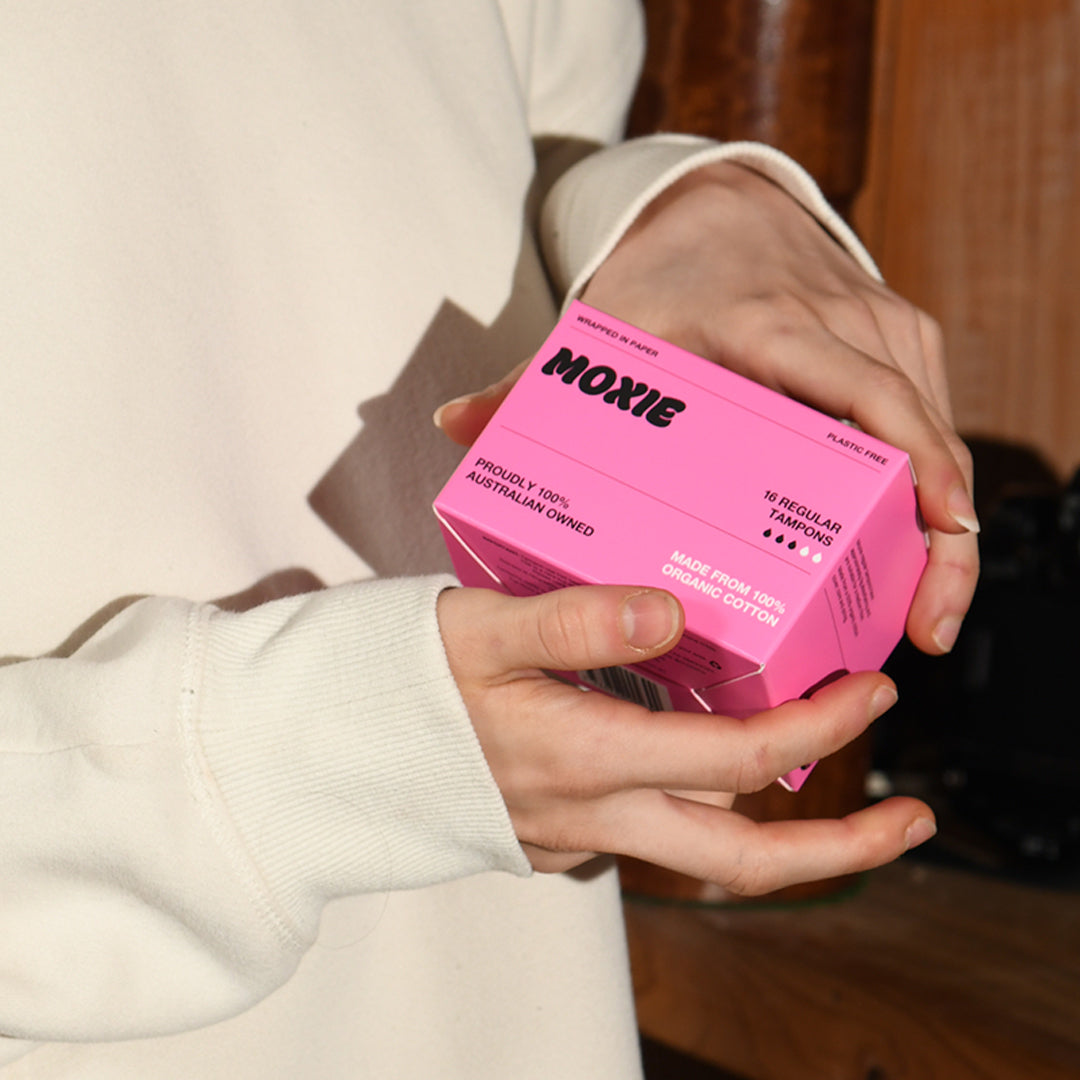Signs, stages & changes during puberty.

Photo by Aleksandar Kyng on Unsplash.
WHAT ARE THE FIRST SIGNS OF PUBERTY?
Puberty, your VIP pass to womanhood and adulthood, usually starts with a few friendly nudges. Picture it like a little intro to growth spurts, hormones playing their own melody, and a variety show of changes. You might first notice budding breasts, skin breakouts (totally normal, dw), catching a whiff of body odor (also normal), and hair growth under your armpits and in your pubic area. It's all part of the puberty playlist!
WHAT ARE THE CHANGES THAT TAKE PLACE DURING PUBERTY?
Hormones start their own party, emotions get in on the action, and your body does its own makeover. Entering puberty can feel really daunting and like totally unfamiliar territory - but it doesn't have to be if you know what to expect.
HORMONAL CHANGES
Puberty is like a switch getting flipped in your body, and estrogen is the key player. It's not just about growing; estrogen shapes your body, from giving you curves to getting things ready for your period. Think of it as the conductor guiding mood, growth, and all things puberty.
EMOTIONAL CHANGES
Imagine hormones as your body's mood controllers during puberty. It's not just about your body changing; your feelings catch some of the action too. Get ready for mood swings – unexpected twists in how you feel, bursts of energy, and the occasional emotional rollercoaster, swinging from high to low.
PHYSICAL CHANGES
Get set for a real transformation! Puberty is like a series of changes on the menu. You'll have growth spurts, a bit of acne popping up, vaginal discharge (this happens around a year after breast buds and before your period starts), some extra body hair making an appearance, and for girls, the main event is starting your period – a big part of growing up. Each change is a step in this whole process of becoming more grown-up.
Remember that everyone develops differently, which means that breasts grow at different rates and sizes - so one may look and feel bigger than the other (and this is generally the case into adulthood, too!). Some people just generally have smaller or larger breasts than others, and that's normal. And also, another important PSA whilst we're at it: every single vulva looks and is different, too. In general, please don't compare your physical self to others, or to what you might see in pictures - you're perfect in your own unique way.
WHAT ARE THE STAGES OF PUBERTY?
Known as the Tanner* stages of puberty, also referred to as sexual maturity ratings (SMRs), these guidelines serve as somewhat of a puberty roadmap - though please remember, everyone is on their own timeline and will develop deifferently. Your friends might experience these signs before you, or later than you, and that's totally normal (if you're ever worried about anything relating to your devcelopment, chat to a trusted adult and see your doctor).
For females, here's what the roadmap from pre-puberty to full-maturity generally looks like:
STAGE 1: PRE-PUBERTY
You're in the pre-game zone, at around 8 years old – no major physical changes yet, but the brain is starting to send signals around the body to prepare for changes.
STAGE 2: BREAST BUDDING
This is when you start to notice physical changes associated with puberty. Around the ages of 9 to 13, these little bumps on your chest and under your nipples signal the start of breast development. It's totally normal for them to grow at different rates, and for them to feel a bit tender to touch. You'll also start to notice pubic hair growing around your vulva. Internatlly, your uterus will start to get bigger, too (but you won't feel this, dw!).
STAGE 3: MORE NOTICEABLE PHYSICAL CHANGES
Between 10 to 15, your breasts keep growing, getting more elevated, and the whole chest area starts taking shape. Your hips will likely widen, you'll grow more pubic hair (and also hair under your armpits), and you might even start to develop acne - but don't worry, it's super common and it's just the hormones at play! In other news, you'll probably experience a growth spurt during this stage, too.
STAGE 4: PERIOD TIME!
For many, this is the stage where you might get your first period. Usually around the age of 11 - 16 (according to Tanner). Your breasts will become fuller and you'll notice your nipples might be more defined. Your well into puberty territory now.
STAGE 5: FULL MATURITY
The grand finale! By ages 12 to 18, you're pretty much fully grown. You'll be at full adult height, your pubic hair will be fully grown, and your breasts will have reached their full, feminine form (though note that their size will likely fluctuate throughout the month due to the rise and fall in hormones, caused by your menstrual cycle!). Your period may take a couple of years to regulate, but you've reached the end of the puberty concert. It's been a ride, but you made it!
* Professor James M. Tanner, a pioneering paediatrician and child development expert, was the first to identify the visible stages of puberty.
HOW LONG DOES PUBERTY LAST?
Puberty's like a wild ride with no set schedule. "This is different for each person but the average duration of puberty is two - five years," says Sydney-based General Obstetrician and Gynaeocologist, Dr. Nicole Stamatopoulos. Genetics, lifestyle choices, and overall health play a role in how long this transformative rollercoaster lasts.
HOW LONG AFTER PUBERTY DOES YOUR FIRST PERIOD START?
Generally speaking, it takes about two to two and a half years. But as we've said, each body's got its own clock, so please don't stress about hitting any kind of exact timeline, or don't worry about whether or not your the first/last in your friendship group to get their period.
If you're worried about anything at all relating to your development speak to a trusted adult about seeing your doctor.
WHAT'S THE DIFFERENCE BETWEEN SPOTTING AND YOUR FIRST PERIOD?
Spotting is like a sneak peek – usually very light and irregular bleeding that may happen here and there, or maybe even just the once, and it likely won't last long. You might only notice this when you wipe, and it's probably not enough to warrant wearing a pad. Spotting is like your body's giving you a little teaser of what's to come.
Periods in general usually aren't as subtle, and you're likely to recognise the difference because your period often comes with a heavier and more noticeable, steady flow that's more red in shade (and often with some other symtpoms like cramping in your pelvic area). And, it's definitely enough to need to wear a pad.
But sometimes, periods can be confusing. "Your first period might be as light as spotting, and so it can sometimes be difficult to know the difference," says Dr. Stamatopoulos. If this is you, it might help to chat to a trusted adult or seek advice from a trusted health professional.
TL;DR: if you notice a spot here and there of very light, irregular bleeding, it's probably just a warm-up (grab them pads in case). If you notice a heavier flow that's brighter red, congratulations! You've just joined the period club. If you're unsure, chat to a trusted adult or a doctor.
HOW DO I PREPARE FOR PUBERTY?
Being puberty (and period) prepped involves a mix of practicality and emotional readiness - like open conversations with trusted adults and friends, reliable resources, and understanding the changes your body undergoes can alleviate any doubts and fear you might have about the whole process. Stock up on period supplies (we might be biased, but our Welcome to Periods! boxes are a crowd fave and a stellar way to get you prepped with everything you need for your first period), embrace self-care routines, and remember, you're not alone - lliterally everyone on the planet navigates this transformative journey one way or another. Let's navigate it together.
That's puberty in a nutshell, Moxette – a few years of crazy changes with no real set rules and no strict schedule. Just a mix of genetic factors, lifestyle choices, and health factors that make each journey totally unique. What we do all share is the fact that we all go through it in one way or another - you're not and never alone on the crazy ride! Just remember that your body's got its own clock, so you may develop differently to those around you, and that's totally ok. Puberty is a ride that's full of surprises, so buckle up and enjoy!



